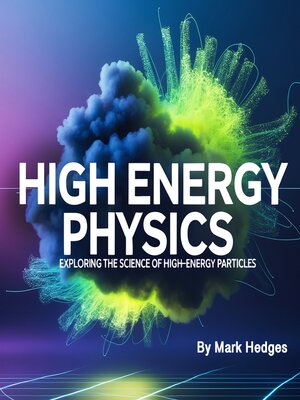High Energy Physics
audiobook (Unabridged) ∣ Exploring the Science of High-Energy Particles
By Mark Hedges

Sign up to save your library
With an OverDrive account, you can save your favorite libraries for at-a-glance information about availability. Find out more about OverDrive accounts.
Find this title in Libby, the library reading app by OverDrive.



Search for a digital library with this title
Title found at these libraries:
| Library Name | Distance |
|---|---|
| Loading... |
High Energy Physics (HEP), also known as particle physics, is the branch of physics that explores the fundamental building blocks of nature and the forces that govern their interactions. It seeks to answer fundamental questions about the universe, such as the nature of matter, the origins of mass, and the unification of forces. By studying subatomic particles at extremely high energies, physicists gain insights into the fundamental laws of nature, often pushing the boundaries of human knowledge.
The origins of high energy physics trace back to the early 20th century with the development of quantum mechanics and special relativity. The discovery of the electron, proton, and neutron laid the foundation for the understanding of atomic structure. However, as experimental techniques improved, scientists found that protons and neutrons were not fundamental particles but were composed of even smaller constituents called quarks. This led to the formulation of the Standard Model of Particle Physics, which describes the known fundamental particles and the forces that act between them.
High energy physics relies on particle accelerators, which propel charged particles to nearly the speed of light before colliding them. These high-energy collisions create conditions similar to those present in the early universe, allowing scientists to observe rare and exotic particles. The most famous accelerator, the Large Hadron Collider (LHC) at CERN, has been instrumental in discoveries such as the Higgs boson, a particle responsible for giving mass to elementary particles.







